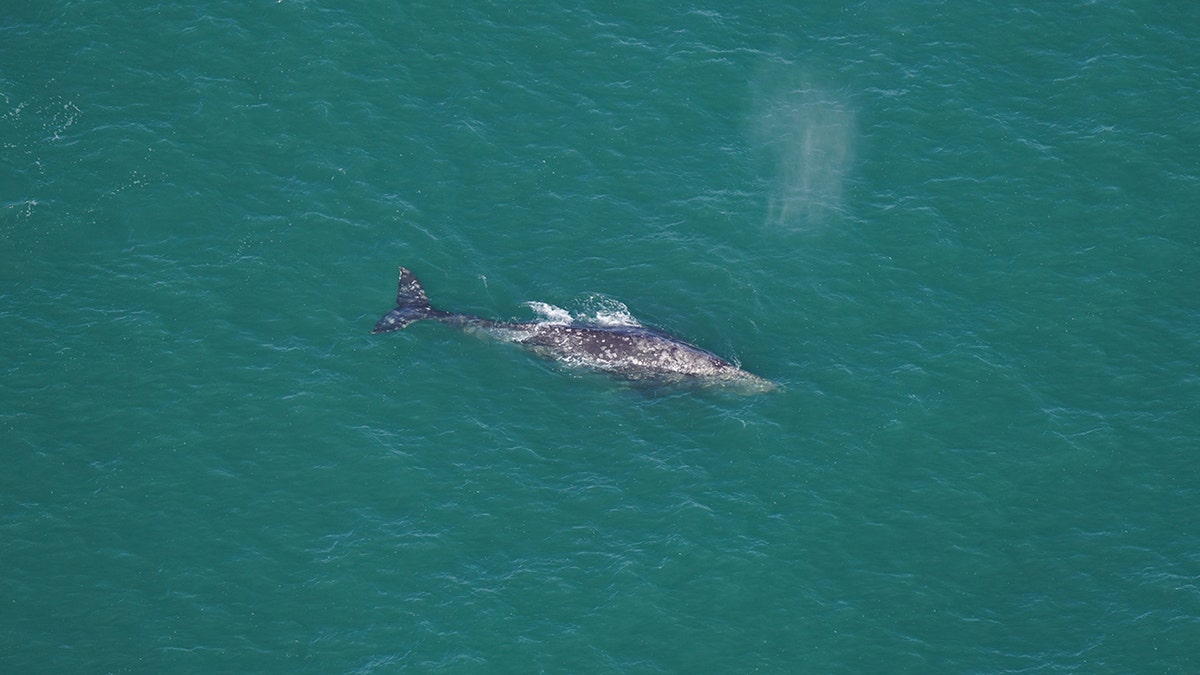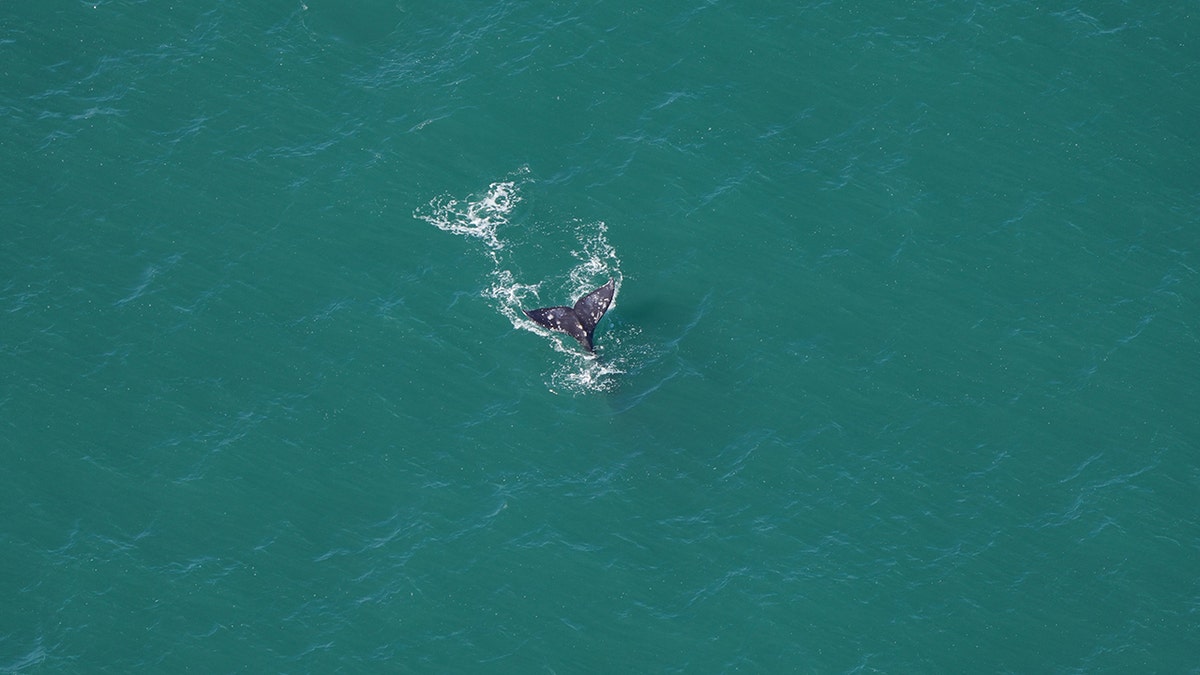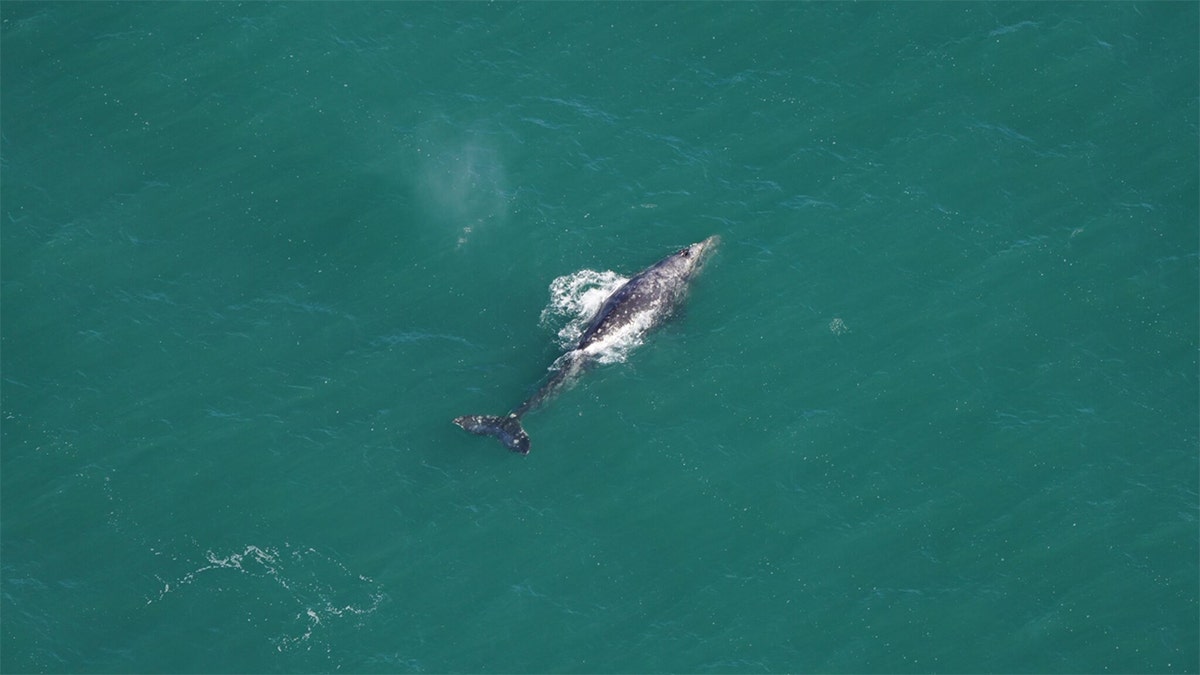Fox News Flash top headlines for March 5
Fox News Flash top headlines are here. Check out what's clicking on Foxnews.com.
Scientists from the New England Aquarium (NEA) in Boston were flying off the coast of Nantucket on Friday when they saw a leviathan that has rarely been seen in the Atlantic Ocean for over 200 years: a gray whale.
The team of scientists was flying about 30 miles south of Nantucket when they spotted the rare whale.
As the whale continued to dive and resurface as if it were feeding, the aerial survey plane continued to circle the area for 45 minutes, giving the scientists time to capture photos and make sense of what they were seeing.
The team reviewed images together and confirmed what they saw was a gray whale.
TWO WHALES WASH UP IN VIRGINIA BEACH WITHIN DAYS OF EACH OTHER: REPORT

Scientists from the New England Aquarium in Boston spotted a gray whale off the coast of Nantucket on Friday. (New England Aquarium)
"I didn’t want to say out loud what it was, because it seemed crazy," Orla O’Brien, an associate research scientist at NEA said.
O’Brien works at the Anderson Cabot Center for Ocean Life, and has been flying aerial surveys for 13 years.
Research Technician Kat Laemmle was with O’Brien on the plane when O’Brien showed her photos while the whale went underwater.
BABY RIGHT WHALE DIES AFTER SHIP COLLISION, FEWER THAN 360 REMAIN ALIVE

Scientists from the New England Aquarium in Boston spotted a gray whale off the coast of Nantucket on Friday. (New England Aquarium)
"My brain was trying to process what I was seeing, because this animal was something that should not really exist in these waters," Laemmle said. "We were laughing because of how wild and exciting this was — to see an animal that disappeared from the Atlantic hundreds of years ago."
While gray whales are not typically found in the Atlantic, they are regularly found in the North Pacific, according to NEA officials.
The whales are described as not having a dorsal fin while donning mottled gray and white skin and a dorsal hump. As the hump descends to the tail, a series of pronounced ridges can be visible.
WHALE DIES AFTER STRAYING INTO OSAKA BAY, JAPANESE OFFICIALS CONFIRM

Scientists from the New England Aquarium in Boston spotted a gray whale off the coast of Nantucket on Friday. (New England Aquarium)
Despite disappearing from the Atlantic Ocean by the 18th century, the species has been making a comeback to the area. In fact, there have been five observations of gray whales in the Atlantic Ocean and Mediterranean waters over the past 15 years, including off the coast of Florida in December 2023.
The one spotted off the coast of Nantucket on Friday is believed to be the same gray whale observed off Florida in December.
Scientists say the strange sightings can be attributed to climate change, explaining that the Northwest Passage, which connects the Atlantic and Pacific oceans through the Arctic Ocean in Canada, has been ice-free during the summers in recent years, due in part to rising temperatures across the globe.
The sea ice typically limits where the gray whales are able to travel as they are unable to break through the thick winter ice that blocks the passage, the aquarium said.
CLICK HERE TO GET THE FOX NEWS APP
But with less ice in the passage during summer months, gray whales may be able to travel to areas not visited by the species in centuries.
"While we expect to see humpback, right, and fin whales, the ocean is a dynamic ecosystem, and you never know what you’ll find," O’Brien said. "These sightings of gray whales in the Atlantic serve as a reminder of how quickly marine species respond to climate change, given the chance."










































